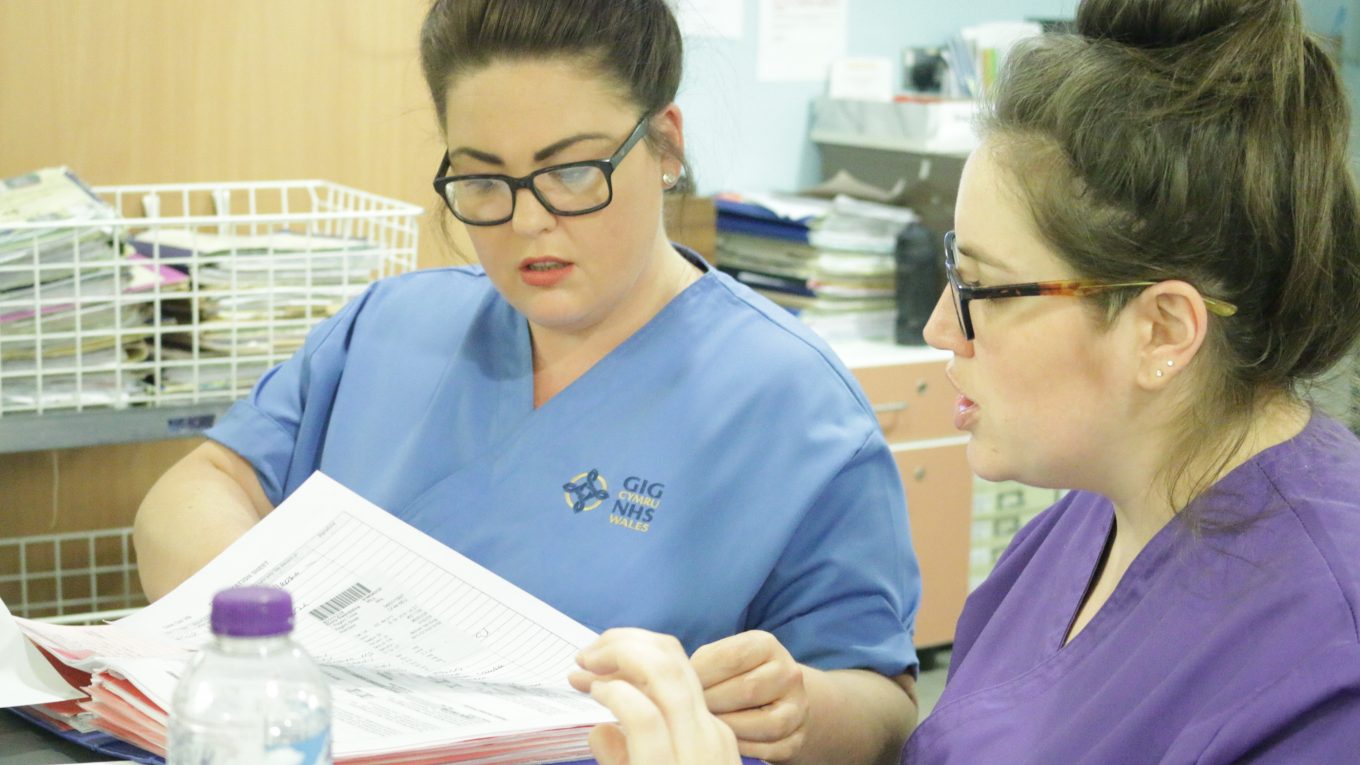Celebrating the year of the nurse and midwife with Lisa Fabb, Improvement Cymru
I started my nurse training over 30 years ago, but I still remember writing an essay that included the quote “The very first requirement in hospital is that it should do the sick no harm”
I thought that a quote from Florence Nightingale was a shoe in to at least a pass but little did I know how that quote would stay with me throughout my career. It is appropriate that 2020, the 200th anniversary of Florence Nightingales’ birth, is the World Health Organisation year of the nurse and midwife as what she said then is still a priority now.
The quote runs through nursing, the Nursing and Midwifery Council’s Code has four principles that UK nurses and midwives must evidence that they are achieving in their work, one of which is ‘Preserve Safety’. I’m sure Florence would be amazed at all the places that nurses are working now to maintain and improve physical and mental health, it’s not something that just happens in hospital.
Before joining Improvement Cymru I worked in nurse education and training (coincidentally like Florence!) and was frequently asked to put on a training session in response to an incident. I found it frustrating as the hardworking nurses I was training would inevitably be able to describe the procedure (that there were safety concerns about) perfectly. When asked why this might not be achieved they explained all the problems with the system or environment that prevented them from doing it. I realised preserving safety was not just about education but examining systems, identifying problems and putting in place measures so we know when we get there – something that Florence Nightingale was also doing in her work back in the 1800’s . This isn’t straight forward for busy nurses but Improvement teams can provide the tools and skills to help.
In my role as HCAI Improvement Manager (like Florence!), I am still trying to ensure that the hospital does no harm. Intravascular devices and urinary catheters are a necessary part of acute care but their use is not without risk, in particular the risk of infection. Peripheral venous catheter (PVC’s) are the most common invasive device in acute hospitals in Wales. According to Public Health Wales (2017) at any one time 35% of patients have a PVC in place. Moreover, 55% of patients with a blood stream infection had a PVC device insitu 48 hours prior to infection and 3 out of 4 blood stream infections that were deemed as healthcare associated also had a PVC device insitu 48 hours prior to infection.
I have recently been working with an admissions unit to reduce blood stream infections from invasive devices. Although the solution was thought to be about greater use of the PVC bundle after examining the problem we realised that prompt removal of PVC’s would have the greatest impact. We are now using a behaviour change model to achieve this. I’m not expecting my work to be celebrated 200 years later like Florence who was a true pioneer, but I’d like to think by channelling her passion for Improvement I’m making a mark in my own way.
Unlike Florence I have the luxury of working as part of a team who understand the complexity of healthcare and have expertise and skills to improve. We have some outstanding nurses and midwives that are experts in their fields and keen to see improvement in healthcare. So in 2020 let’s all try and be more like Florence by making improvements that reduce harm – let us help you on your Improvement journey by taking up our free training suitable to all levels. Find out more here.

